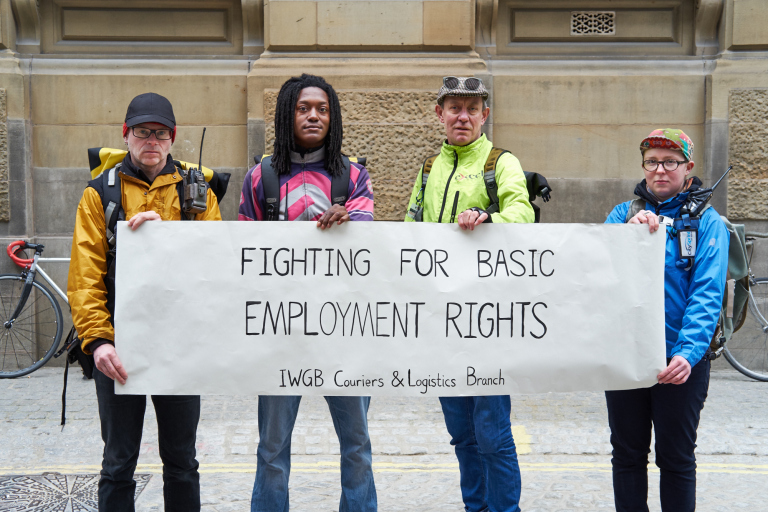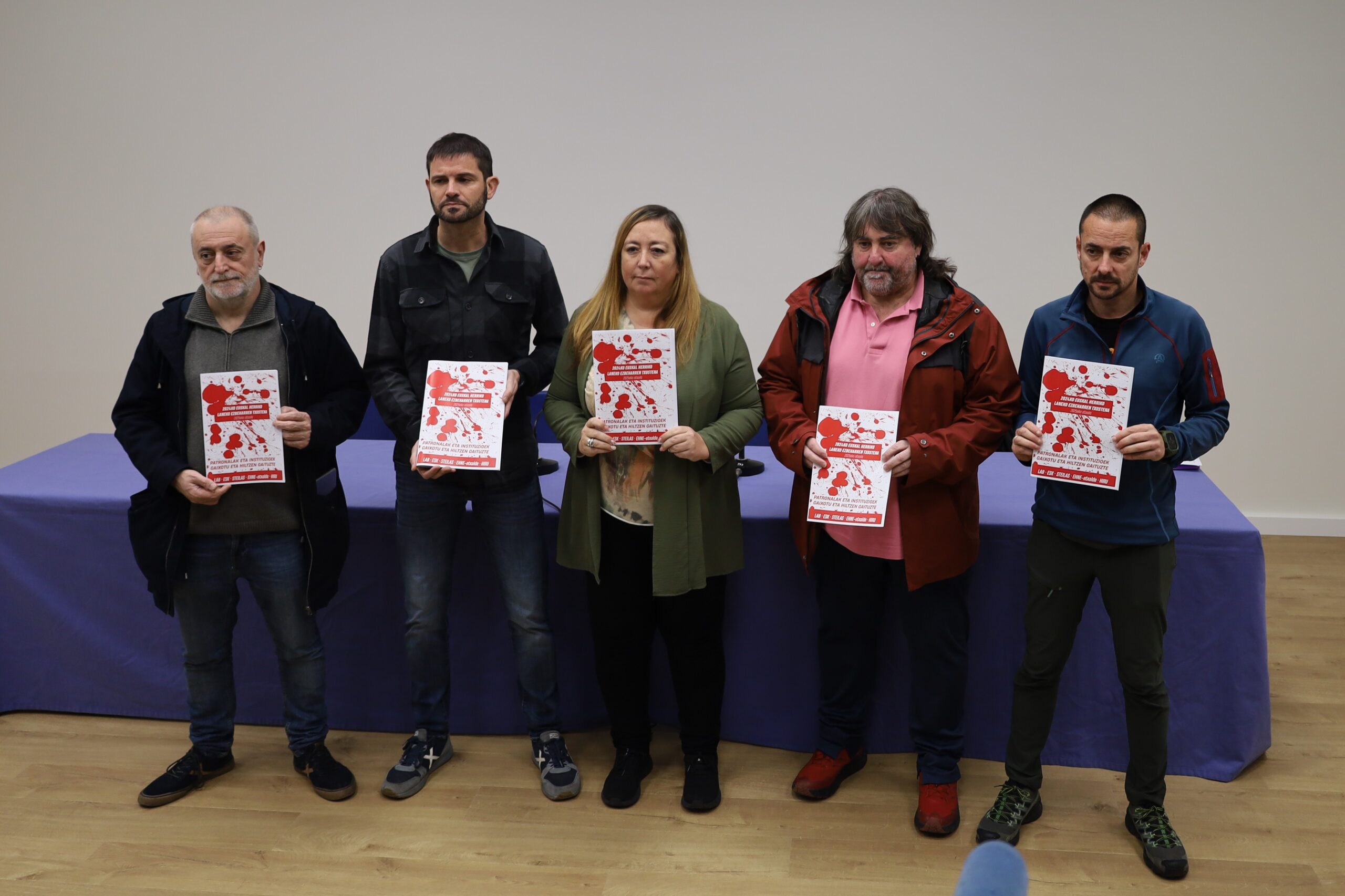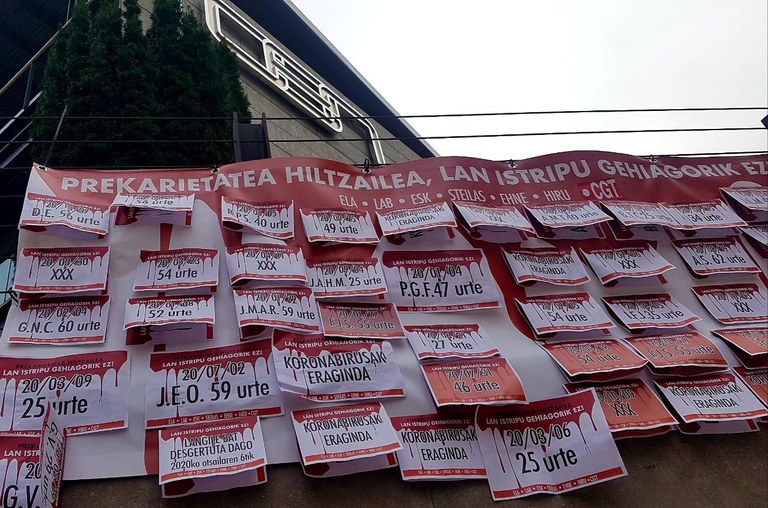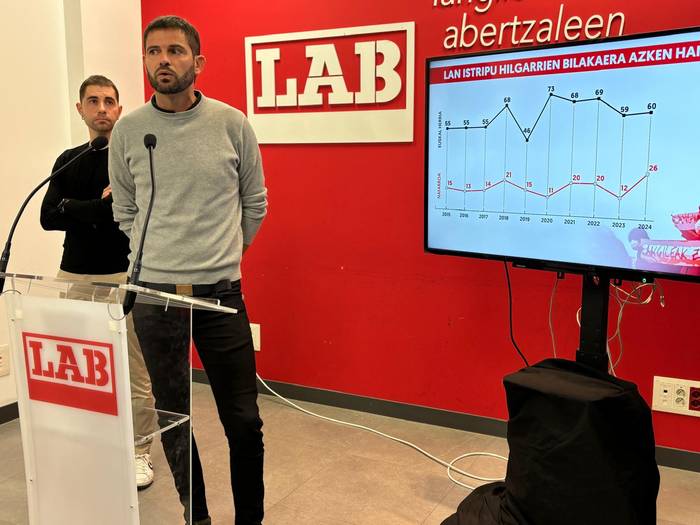The precarious messengers of London attack the hand of their masters
- The London Labour Court has given Courier Maggie Dewhurst a reason:In the case of a self-employed entrepreneur, CitySprint must conclude a contract of worker with all rights, holiday days, sick leave days and minimum wage for British workers. Dewhurst, an egoistic who has shown what the success of the famous 'Ganga Economy' that neoliberals have enhanced everywhere is.

San Sebastian’s well-known labor lawyer, Carlos Trenor, as was the case with Judge Garzón before entering prison with the Egin case, continues to do so when he leaves, he has just declared in an interview on the workers’ struggle: “Personally, I think we have to try to organize precariousness, but that cannot be done by the unions, they are not prepared for that. How is it going to be created? The precarious must think that.” As well as thinking, they're starting to fight.
A humble 29-year-old English courier, Maggie Dewhurst, who runs through London by bicycle, distributing emails and small packages, has won a battle with the company CitySprint, which gives it work. “I am delighted – he has told the BBC – that the court has resolved in my favour and thus set a legal and moral precedent for others with similar claims.”
People performing bicycle distribution jobs in big cities are exotic to people who do not live in metropolises, perhaps we associate them with images of ecology and sustainability, which offer a closer image to young informal athletes. We have not realized that they are the precarious workers of the new economy, such as those who distribute pizzas with motors or those who carry out taxi duties under the influence of Uber. Jobs generated by the first green outbreaks in the context of the 2008 crisis, paid with misery.
Maggie Dewhurst has spent two years with CitySprint, working and charging as if it were a private or autonomous contract. That is, as a supplier, as a baker who sells us the bread of every day. But he has denounced to the courts that he actually works as an employee of the company, who spend all day fulfilling what they promise from the company, what to do, how and when, under his total control, the messengers are not a mosaic made up of small businesses, so they are owed the minimum wage and all other rights as to any worker.
The magazine Red Pepper gathers Dewhurst’s opinions in the chronicle “Bike courier Maggie Dewhurst takes on the satelite economy… and wins”: “You have to bite the hand that gives you to eat if you want to change things, because the elderly give themselves a lot more to eat. We subsidize the bosses altogether. We pay all of us, the cost of the bicycle, the parts, the maintenance, the work -- everything. The phone also goes on my own. I have to bear all the costs to be able to work. The company says I have my business. I say no, you compel me to assume the running costs of your business.”
Today, the young bicycle messenger graduated from college just as the financial crisis broke out and has seen what they call the labour market deteriorate, how jobs were lost that were better today if they were looked to replace them with much worse ones. “If we do not do something, the standard standard will be to have thousands of computer-controlled workers, followed and controlled by smartphones, without having any right to work.”
The cyclist versus 'Satelite Economy'
Britain has declared itself a champion of Europe in the well-known economy, which wants to generalize the Uber model. In addition, more and more occupants of hotels, and recently hotel owners have mentioned the incorporation of former workers into self-employed layoffs in order to reduce cleaning costs. But the world in which Dewhurst, the world of self-employed workers, lives underground for politicians and economists, has hardly been studied.
(The ArchiveNews channel explains in this video the conflict of CitySprint messengers over the weekend).
According to increasingly neoliberal legislation, workers gain freedom by making themselves a company, supposedly giving up bad business and facilitating the outsourcing of certain jobs. Dewhurst shows the judge that his relationship with CitySprint doesn't go around. You dress up with the company uniforms, every morning you have to call the driver, the electronic device you're wearing tells you where to take the next one when we deliver one thing to you. “In 50 hours a week, CitySprint tells me what to do.”
You can flush it out if you're wrong at work. It doesn't move quickly, though. You also need driver's permission to enjoy an unpaid holiday. In the event of an accident or illness, you can go out to the street.
Dewhurst participates in IWGB, the British Union of Independent Workers. This small union emerged in 2012, after leaving the big union UNITE, which was part of the Cleaning Sector. The outsourced workers at the University of London, who had also left, were immediately joined. In recent years, IWGB has expanded into three more branches: private security guards, messengers and logistics, and those working on surveillance.
“We are an independent trade union – IWGB points out in the presentation – a voluntary association made up exclusively of workers fighting for the interests of workers. We do not cooperate with the main ones, we are not controlled by bureaucrats, we are not happy with politicians. We are not an insurance company, the union is our partners, our representatives are workers like you. We all have our role. We work together to help each other. We have to build the strength of the working class as an individual that big companies and corporations don’t crush us.”
The IWGB department of messengers and logistics workers says there is an urgent need for a wage increase, which many companies have not raised salaries to their workers over the past 20 years, even very often. As they bill as self-employed, the primary objective is to improve company rates, but also to improve labour rights and protections.
The London bicycle messengers made their first protest in summer 2015. Previously, the workers of the cleaning section of IWGB, mostly South American women, carried out a successful “3 things” campaign, in which three rights were established to obtain from their companies – that is why the name in Castilian – basic: that the elderly pay sick days, holidays and retirement contributions. It has been much more complicated to mobilize and concentrate messengers in the union, who have long had an integrated autonomous culture.
The London conflict is facing a small trade union of precarious workers, which costs £1.7 billion a year. In Article 64 of the resolution, the judge states that “it has been found that an army of lawyers has prepared the contracts”. A pretty big enemy for precarious cyclists.
LANBIDE has launched an anti-fraud campaign in Income Guarantee Income and has created an anonymous whistleblower. Responding to the criticisms received, he said that this mailbox was merely an instrument for ordering complaints and notifications. It does not promote class... [+]



















-(1).jpg)





